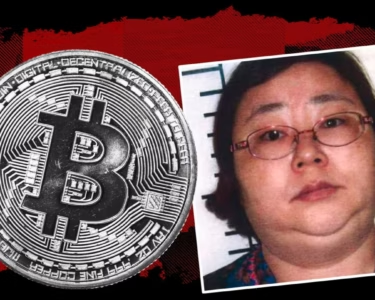The Democratic Republic of Congo (DRC) has plunged deeper into political turmoil. The government banned the People’s Party for Reconstruction and Democracy (PPRD). This party is led by former President Joseph Kabila. The ban took place on April 20, 2025. The interior ministry accused Kabila of maintaining links with the M23 rebel group.
This group is a Rwanda-backed militia. It has seized significant territory in the east, including the strategic city of Goma, earlier this year. The move marks a dramatic escalation. It deepens the ongoing conflict between the administration of President Félix Tshisekedi and Kabila. Kabila led the country for 18 years until 2019.
A Ban Fueled by Suspicion
The interior ministry’s statement pointed to the PPRD’s “ambiguous attitude” toward the M23 occupation of Congolese territory. This was cited as the primary reason for the ban. It also highlighted Kabila’s recent return to Goma. The city is now under M23 control.
He is reportedly being protected by the rebels there. On April 19, the government accused Kabila of high treason. They also ordered the seizure of his properties. This signaled a sharp deterioration in relations between the former president and the Tshisekedi administration.
Kabila, 53, has denied any ties to M23. The United Nations and the United States have confirmed that M23 is supported by Rwanda. A 2023 UN report detailed Rwanda’s deployment of thousands of troops into eastern Congo. This action exacerbated a conflict that has displaced over 7 million people since 2022.
Despite Kabila’s denials, the government’s suspicions are fueled by historical ties. Corneille Nangaa leads the Congo River Alliance, which includes M23. He was a close ally of Kabila and headed the electoral commission during his presidency.
Kabila’s Controversial Return
Kabila’s return to DR Congo after two years in South Africa has reignited tensions. He left the country in 2023 to pursue studies. In January 2024, he earned a doctoral degree from the University of Johannesburg. His focus was on the geopolitics of African relations with global powers like the US, China, and Russia.
However, his reappearance in Goma—confirmed by some reports but denied by senior PPRD officials—has raised eyebrows. The M23 spokesperson, when pressed by BBC Great Lakes, neither confirmed nor denied Kabila’s presence, stating, “I don’t see any problem with him being here.”
In a statement earlier this month, Kabila expressed a desire to help resolve the DRC’s “worsening institutional and security crisis.” He told Jeune Afrique that he wanted to “play a role in seeking a solution” after six years of political retreat. But political economist Ben Radley, a lecturer at Bath University, pointed to historical parallels that have alarmed many Congolese.
“Kabila’s father, Laurent-Désiré Kabila, also entered Congo from the east in the late 1990s during his march to the presidency,” Radley noted. “This historical continuity, combined with Kabila’s ties to Nangaa, has fueled speculation about his intentions.”
A Conflict Rooted in History
The M23 conflict is deeply tied to the region’s troubled history. Its roots are in the 1994 Rwandan genocide that spilled over into eastern Congo. The rebels are predominantly from the Tutsi ethnic group. Rwanda has long supported them. Rwanda seeks to maintain influence in the resource-rich region. Eastern Congo has vast deposits of coltan, which is a mineral critical for electronics.
Controlling coltan has been a flashpoint for decades. The Second Congo War (1998–2003) involved multiple foreign armies, including Rwanda’s. During this conflict, Kabila’s father was assassinated. The war left millions dead.
Kabila assumed the presidency in 2001 at the age of 29 following his father’s death. He led the country through a transitional government established by the 2003 Pretoria Accord. He won elections in 2006 and 2011. Controversially, he delayed stepping down after his second term ended in 2016. This action sparked deadly protests. He finally handed power to Tshisekedi in 2019 after a disputed election. Many observers claimed it was rigged through a backroom deal between Kabila and Tshisekedi. Opposition candidate Martin Fayulu was among those who made this claim.
Public Reaction and Regional Implications
The ban on the PPRD has sparked mixed reactions on social media. A user on X, @Navi_anjum, criticized the BBC’s reporting for lacking Kabila’s direct perspective and independent verification of the government’s claims, calling it “one-sided.” Another user, @realsaaondott, labeled Kabila a “moron” and an “American puppet,” reflecting the polarized views among Congolese citizens. Meanwhile, @US_ShipOfState questioned whether Kabila and Tshisekedi hail from the same tribe, hinting at the ethnic dimensions often underlying Congolese politics.
The conflict’s regional implications are significant. Rwanda’s support for M23 has strained relations with the DRC, bringing the two nations to the brink of war. A January 2025 report by The New York Times noted that 500,000 people fled their homes as M23 advanced on Goma, threatening a new humanitarian crisis. Kabila’s alleged involvement could further complicate peace efforts, especially given his historical ties to the region’s power dynamics. During his presidency, Kabila’s forces defeated M23 in 2013, but the group has since resurged, splintering into a more dangerous movement.
What’s Next for DR Congo?
As of April 20, 2025, Kabila’s spokesperson, Barbara Nzimbi, announced on X that the former president would address the nation “in the coming hours or days.” His next moves could either de-escalate the crisis or push the DRC closer to open conflict. For now, the ban on the PPRD has left Kabila’s political future uncertain, while the Tshisekedi administration faces mounting pressure to address the M23 insurgency and stabilize the east.
The international community, including the UN, has called for the withdrawal of foreign troops from Congolese territory—a demand Kabila himself echoed in a recent interview in Namibia, where he attended the funeral of former President Sam Nujoma. Yet, with Rwanda’s continued involvement and Kabila’s ambiguous role, the path to peace remains elusive.






